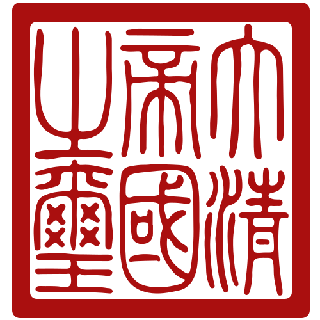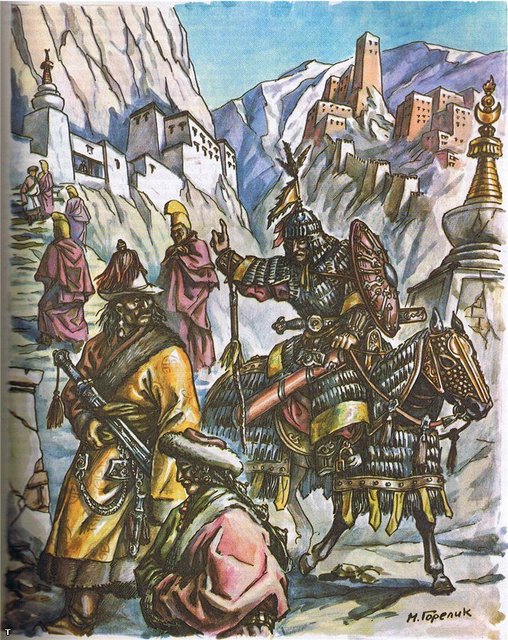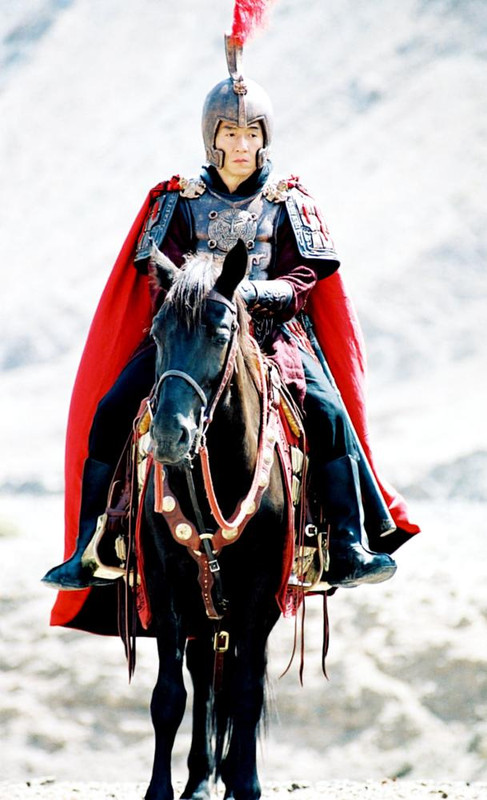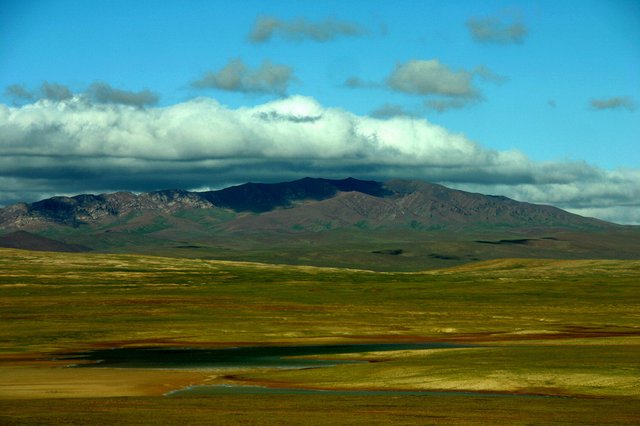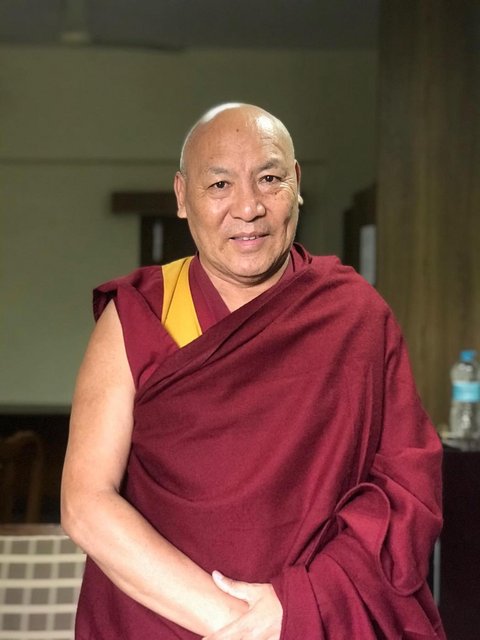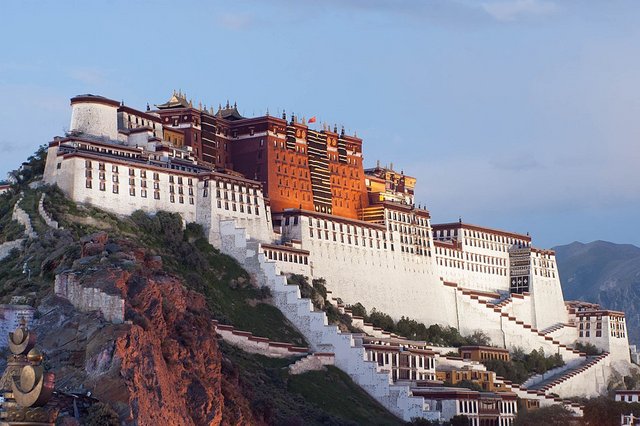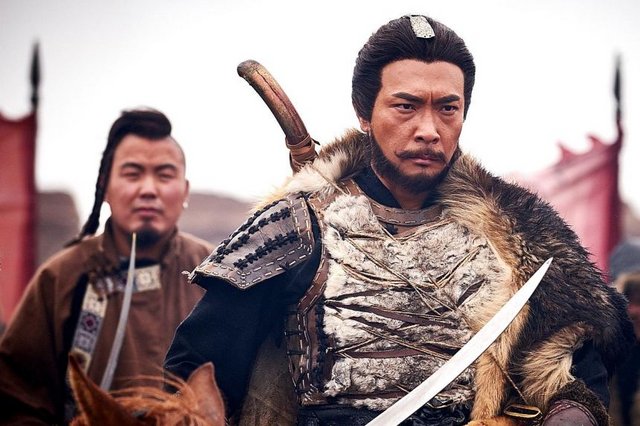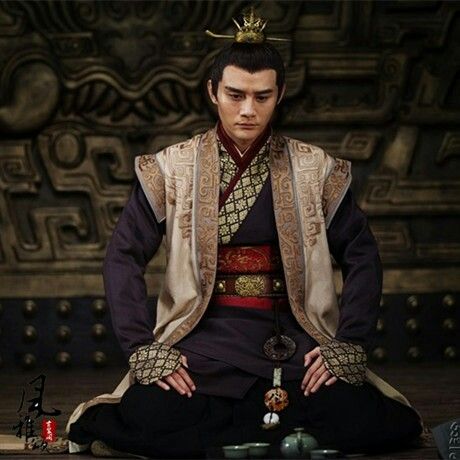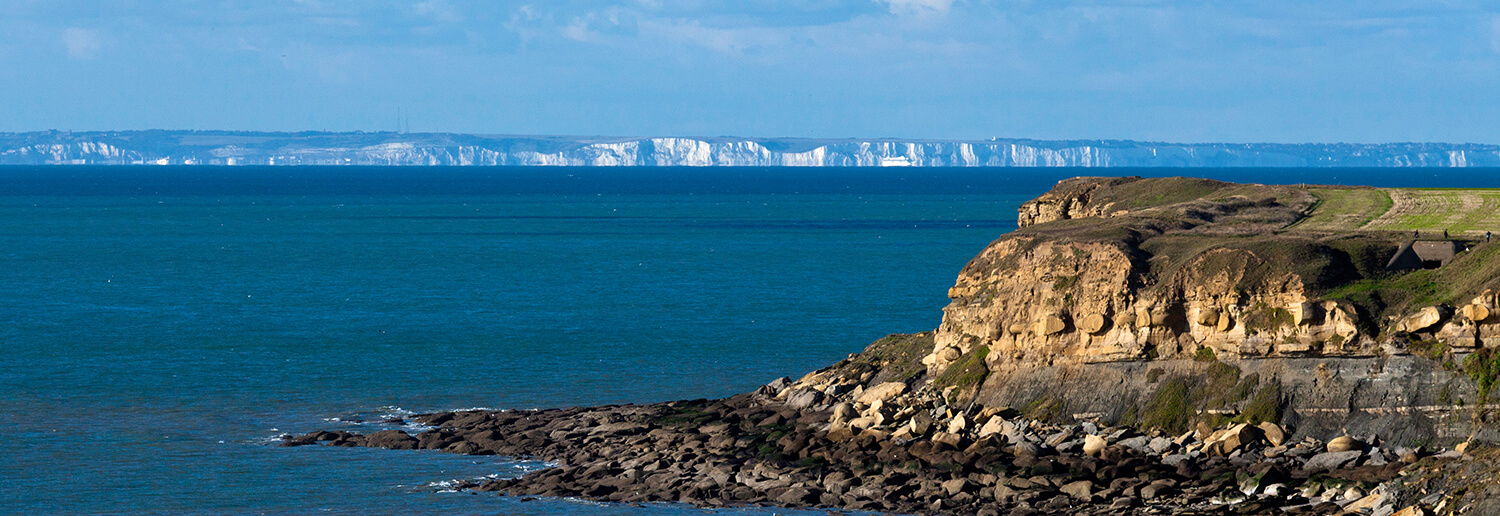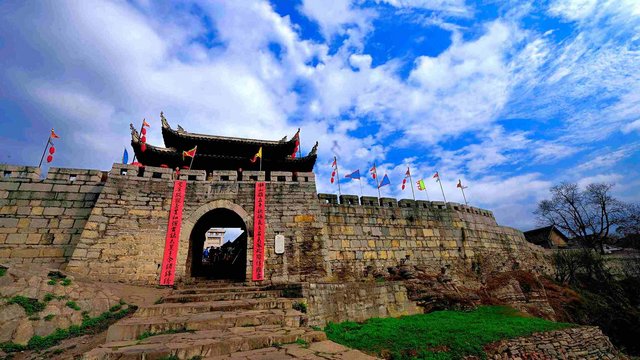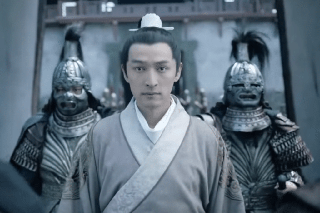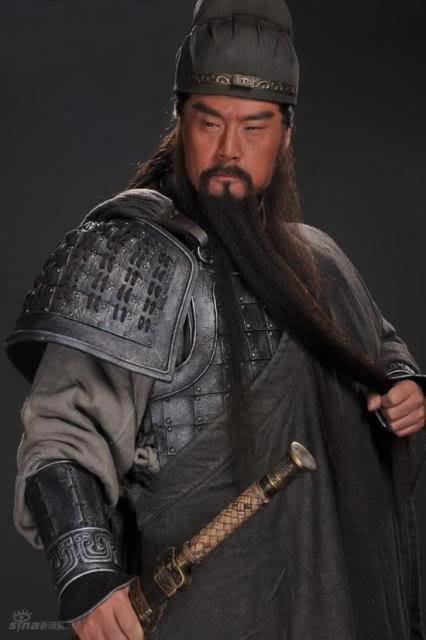Paris, Royaume de France
January, 1812
"VIVE LE ROI! VIVE LE ROI! VIVE LE ROI!"
The standing men in the room shouted, some wore dark blue military uniforms while others wore more common civilian garb. The man who had just entered, meanwhile, wore a pure white uniform with dark blue and gold markings, the Fleur-de-lis proudly marked on his collar and shoulder and a grand purple sash that loosely hung from his body. The man put up an impressive figure, standing quite tall and proudly despite the graceful yet clear ageing that covered his face. His hair, once black, was now a steel grey and despite his rather intimidating stature, he put off a calm and serene aura.
Louis XVI gestured for the men to sit down, taking a seat himself, "gentlemen, it is always a pleasure."
"Let this meeting of the Cabinet du Roi commence! First of all, I hear that there have been troubles with our friends in the British Royalists-in-Exile, am I correct?"
Antoine Barnave, his stature straight and his features stalwart, replied, "Yes sire. Unfortunately, we received news that the Commander-in-Chief of the English Royalist Army, Sir Ralph Abercromby, has taken ill."
Barnave grimaced, "Sir Abercromby...Sir Abercromby does not expect to see the beginning of Spring, sire."
Louis XVI's face turned sour at the news, "Ah, I see."
A turn of events Louis never thought he'd see, the British Royalists-in-Exile had become quite the celebrities in France. Their actions in saving French India during the Civil War and further support of other French pursuits had, if not redeemed them, then at the very least made them be held in more respect by most of the French population. Abercromby, though someone who had actively fought against the French during the Seven Years War, had been a spring of military knowledge and had occasionally even helped in the training of the new Armee de Royale. He'd been an enjoyable presence in the court of Louis XVI, and it was indeed a damn shame to see such a man wither away.
"Arrangements have already been made for Abercromby's chosen successor, General Arthur Wellesley, to begin taking up his duties as leader of the British Royal Army-in-Exile."
Louis XVI perked up at that. Though Abercromby's death would be a loss, Wellesley had always been a favourite among the ranks. Having been the one to lead the expedition to India, Wellesley had earned quite a reputation, especially in his previous duties as liaison to the French Government. Louis had heard that the "Iron Duke" had even retained a budding friendship with Louis' trusted confidant Napoleon Bonaparte.
Overall, a fine choice.
"Make sure to send my condolences to General Wellesley," Louis finally replied, Barnave nodding. "Now, Lafayette, I hear that there is some important business concerning our most Catholic friends in the east?"
Lafayette, looking as dapper and composed as ever, nodded. Lafayette, though a Marshal of France, had agreed to temporarily take over Talleyrand's position of Minister of Foreign Affairs while the crippled man was away to begin diplomatic negotiations with the Asian powers.
"Indeed sire, we received a letter from his most esteemed Holy Roman Emperor Fredrick II. He requests our support for an initiative to attempt to mend the schism between the Catholic Kingdoms of Europe and the Eastern Romans."
There was a sudden reaction from that, ranging from quiet mutterings to loud exclamations. Among the latter, Louis-Auguste suddenly stood up, "Absolutely outrageous! We should have nothing to do with those heretic Byzantines!"
While many of the other cabinet members looked absolutely shocked, Louis XVI internally sighed. Louis-Auguste was typically a very mellow and soft-spoken man, almost shy. Louis XVI would know that more than anyone, but he also knew that his brother was especially....dedicated when it came to matters of religion. As Minister of Public Instruction & Worship that was to be expected; encouraged even. Yet his brother could often get a little fanatical and nonsensical if pushed too far.
"Brother please, calm yourself," Louis XVI soothed. Louis-Auguste, now noticing the reactions around the room and realising how unbecoming his exclamation had been, went red and sheepishly sat back down, uttering a quiet apology.
"Now, all of you know that my stance concerning religious freedoms has been quite flexible, yet on any other day, I'd typically be rather reserved at the prospect of treating with the Byzantines. But...in truth I have been entertaining the idea for a while," Louis XVI raised his hand before anyone could start another argument, "while we find ourselves at a natural rivalship of the Byzantines, we also find ourselves surrounded with threats. To the north and east, we have those Neo-Jacobins in Britain and Germany just waiting to attack us and put Robespierre's blood-crazed regime into power. Our colonial situation concerning Britain especially has created much concern. Even our fellow Kingdom to the west, Hispania, appears to be threatening our border in the name of their conservative king: threatening the Constitutional Revolution."
"Gentlemen, simply put we are surrounded and we need more allies."
"Furthermore, this meeting with the Eastern Romans might bring us the opportunity to further establish our interests," Lafayette suddenly interjected, "all here knows of their rather vocal opposition to our expansion efforts in North Africa."
"Which is why I say that to make peace with the Byzantines is far more important in the long term than it is upholding outdated rivalries," Louis XVI finished, eyeing those in the room. Some wanted to speak up, but most knew that France's situation was, indeed, concerning at best.
Louis XVI nodded, "Good. Lafayette? See to it that a reply is sent back to his majesty Fredrick II, tell him that he has France's full support."
"As you wish, sire," Lafayette replied, semi-bowing.
"Good, now, Marshal Suchet," Louis XVI continued, turning to one of the dark blue-clad military men in the room. When Napoleon suggested that Suchet temporarily took over his responsibilities as Grand Marshal in Europe while he was away on campaign, Louis XVI had initially been sceptical. Though he had served with prestige and efficiency in the field, Louis XVI thought that some of Napoleon's more famous Marshals would be more suitable; perhaps the master logistician Marshal Berthier or the always steadfast and masterful "Iron Marshal" Davout. Yet Suchet had proved him wrong, proving a masterful & skilful administrator, more so than even members of his own cabinet! It was a travesty that the man hadn't been brought to his attention sooner!
Currently, Napoleon was in Tunisia fending off an attack. Some years ago, a powerful warlord by the name of Muhieddine Al-Hasani had united numerous tribes and Emirates in Tripolitania and Fezzan, declaring the creation of a new "Idrisid Caliphate," though in truth nothing more than a jumped-up coalition of local warlords. Initially, the "Neo-Caliphate" was of little concern to the French, with encounters limited to only trade and the occasional border skirmish. That had all changed when the "Caliph" Al-Hasani had declared a Jihad against France in order to "reclaim the rightful Fatimid territory of Ifriqiya," and attacked the province of Tunis. The local garrisons, caught off guard, were quickly overwhelmed and in just over a week over half the province had been taken.
With such a crisis in the colonies, Napoleon had insisted on leading the counter attack himself. Louis XVI had agreed, and soon enough Napoleon had left for North Africa with a hastily gathered expedition 20,000 strong.
"Have you received any news concerning my dear friend Napoleon's progress in the war?"
Suchet nodded, "Yes sire, he has pursued Neo-Caliphate forces out of the north and broken their siege at Sousse. In his last report, he has stated his intention to engage the Emir Muhieddine's forces at Sfax."
"Hm, last I heard the Emir's forces outnumbered his 2-to-1. How do you judge his chances, Marshal?"
Suchet chuckled, "his chances, sire? He has both God and superior artillery on his side."
"The battle will be over as soon as he says-"
Province coloniale de Tunisie, Afrique française
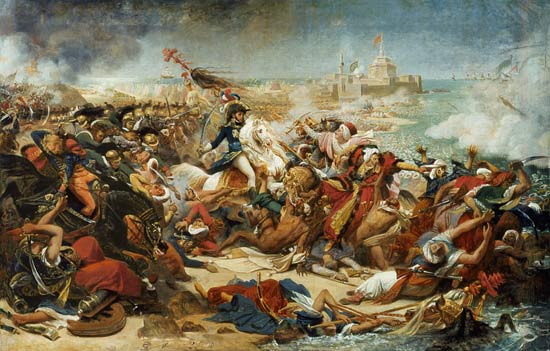
"-FEUR!"
A twelve-pounder cannon roared, followed by its brothers in the rest of the battery. Only a moment later a group of men down below were torn apart, as if struck down by an asteroid from the heavens in a haze of dirt and smoke.
Sat atop a pure white horse, a man dressed in an elaborate double-breasted dark blue coat looked on with his spyglass, the uniform decorated with medals and tinged with red and gold.
"Grand Marshal! The right flank!" a voice shouted out, the Grand Marshal looked to the right to see a mass of men and horses, waving sabres & muskets in the air and screaming out war cries, advancing.
Lowering the spyglass, Napoleon Bonaparte smirked. "The Emir has committed his reserves, just as expected."
Napoleon turned to the crowd of blue-clad officers behind him, "Lannes! Bring up your division from the rear and meet the enemy charge, then feint a fighting retreat. Montbrun! You will support Lannes' men and deflect those horsemen, when the time is right you will counter charge and overwhelm their left flank!"
"I will not fail you, Napoleon!" "Oui, Grand Marshal!"
"Bessieres! Murat! Go to your cavalry on the left, and await my signal. Once sent, you shall outflank and overwhelm their right flank, then destroy their artillery; do not engage the infantry in the centre."
"As you say, Napoleon!" "We know what to do!"
As the two cavalry daredevils left, Napoleon turned back to the battle. Arrayed in front of him, across vast arid landscape abruptly ending at an ocean coastline, were lines upon lines of tightly ranked French soldiers, the blue-red-white crossed fleur-de-lis flag of the kingdom waving proudly at its front. They maintained tight ranks, with ramrod postures and straight lines, an absolutely disciplined sea of blue arranged across the sands positioned just to the right of a large hill that protected their flank.
Facing them, another army marched to meet them, outnumbering the French by a wide margin. The horde wore a large variety of uniforms: from pristine bright green uniforms to shoddy brown desert robes, all marching below a cacophony of flags, most prevalently a white flag with a green eight-pointed star made of inscribed words proudly stamped on the centre of it: the banner of the so-called "Idrisid Caliphate." Though they didn't look the part many of them, especially the green-clad soldiers, marched in similarly disciplined lines with various exotic instruments blaring out into the open air. Despite that, many more were advancing forwards more in disorganised mobs than anything.
On the right, Napoleon watched as a massive wave of Idrisid cavalry and infantry charged forwards, only to clash with Lannes' division. Masses of muskets cracked on both sides as fire and shot were exchanged en masse, more and more bodies on both sides beginning to fall. Slowly however the French grenadiers, differentiated from their regular compatriots by their red facings and epaulettes, began edging backwards, seemingly disheartened and slowly falling back.
The enemy noticed this and pushed their attack even further. As the French continued to gradually fallback, some of the Idrisid troops sensed weakness and began running out of formation for a charge. Then a few more joined them. And then more. Soon enough the entire enemy formation was charging forwards into Lannes' men, as they continued to pour shot after shot into them.
His trusted aide, Armand de Caulaincourt, rode up beside Napoleon, "It appears that the Emir is throwing much of his weight on the right flank."
"That is what I'm counting on," Napoleon promptly replied, still watching the battlefield. He watched as the grenadiers continued to hold firm, despite the overwhelming force they were facing.
"You seem confident that they won't breakthrough, sir."
"Oh please, Caulaincourt, this is Lannes we're speaking of," Napoleon retorted, "give him a battalion with enough ammunition and he could hold off the Gods!"
Satisfied, Napoleon turned to his left. Taking off his bicorne hat, he waved it in the air, seemingly at nothing.
Yet the response was immediate, as bugles began sounding and distant shouts of "Charger!" were heard. Suddenly a huge mass of cavalry, hidden behind the large hill on the left, rode forwards. Their galloping hoofs seemed to shake the very earth beneath them as they charged towards the enemy's weakened right flank. Napoleon had noticed that while the enemy centre seemed relatively solid, the enemy's right seemed to be composed of mostly rabble and lower quality troops.
His intuition proved accurate, as the enemy right began to break at the mere sight of the French heavy cavalry. Some ran there and then, others desperately fired into the wave of steel and horses. Yet their resistance was negligible and many were sent flying as the pure force of the French cavalry charge lifted many off their feet, and left many more crushed under hundreds of hooves.
Napoleon watched with satisfaction as the Murat's and Bessiere's cavalry utterly wiped away the enemy right and instantly headed for their artillery. Lacking reserves to respond to the surprise attack, Napoleon watched as enemy couriers began approaching his right flank, beckoning for the Idrisid troops engaged there to withdraw from their attack and save their guns. With organisation lost during the charge and having taken heavy casualties, the order to withdraw only brought further chaos to the enemy forces engaged on the right.
Napoleon once more waved his hat to the right, and soon after Montbrun's cavalry skillfully manoeuvred around the engaged enemy and charged at their flank. The enemy, exhausted and in chaos, panicked at the sight of additional French horsemen and began to flee. Soon enough, Montbrun's light cavalry was upon the routing enemy, with Lannes and his grenadiers now going on the offensive as well.
All that remained was the enemy centre, composed of the most elite of their forces. This, again, showed as the enemy infantry at the centre instantly began forming square formations in good, if hurried, order.
"Unexpected from this rabble," Caulaincourt commented.
Napoleon turned to his aide with a grim expression, "this rabble is no longer the same one that we faced years ago, Caulaincourt."
"Indeed, Grand Marshal, they appear to have learned."
"Or someone has helped them learn; France has no shortage of enemies who would do anything to impede her. One does not simply reform and re-equip such an army on such a scale in such a short time, especially in the middle of this damned wasteland."
He smiled, "unfortunately, even that will not save them."
Napoleon looked to his couriers, "You three! Ride to the centre, go to Oudinot, Desaix and Ney! Order them to converge on the enemy centre immediately!"
The couriers uttered a quick """Oui, Grand Marshal!""" and rode fast to the frontlines. Napoleon, meanwhile, directed his attention to his commander of artillery and good friend Auguste de Marmont.
"Marmont! Bring about the batteries and target those infantry squares, I want them ground to dust!"
"As you say, Napoleon! Artillery, re-direct your fire on these coordinates, FEUR!"
The entire battery turned and soon enough began firing upon the enemy squares in the centre. The nature of the square meant that, while they'd be completely safe from cavalry, their inability to manoeuvre and their concentrated formation would mean they were extremely vulnerable to artillery.
Holes began appearing in the squares as wads of men were torn apart by cannon fire. Yet despite their casualties, the squares continued, again and again, to close ranks in such a disciplined fashion that even Napoleon was impressed. These soldiers were fighting better than some European armies he had encountered.
It would prove in vain, however, as thousands of French infantry began descending on the squares. Soon enough they were in range and began sending an absolutely massive downpour of musket fire upon the squares. While the squares responded with their own musket fire, the nature of the formation meant that they could only bring about 1/4th of their firepower to bear. And so, the squares were systematically torn asunder by a mix of both musket and cannon fire. Soon enough, even the supposed high discipline of these Idrisid soldiers could not hold, and the squares that remained dissolved into a mass of routing men.
The entire Idrisid army was in retreat and Napoleon could already see Murat, in his typical extravagant fashion, standing upon the captured enemy artillery batteries, waving a French flag.
"Sire! Look!" Caulaincourt exclaimed, pointing. Napoleon turned his spyglass to the given direction and saw a glorious sight indeed.
A small entourage of men on camelback was riding away from the field at full gallop. It would be nothing special if it were not for the many banners the group were flying: the personal banners of the New Idrisid Dynasty. Even at this distance, he could see the extravagant golden robes of the self-proclaimed "Caliph" Muhieddine Al-Hasani, going as fast as possible upon a beautiful large camel away from the battlefield.
"Shall I dispatch a cavalry detachment to chase him down, sir?"
"No, let 'his holiness' live in the shame of this defeat. Besides, there will be more opportunities to capture him once we've marched to his 'sacred' capital at Tripoli and claim it for France."
"Very good, sir. Then allow me to be the first to congratulate you on a glorious victory."
Napoleon smiled, "the first of many to be sure, Caulaincourt, the first of many."
In the distance, he could hear his troops, his "Grand Armee," celebrating their victory. Chants of "Vive le France!" and "Vive le Roi!" filled the air, and Napoleon could even hear some chanting "Vive le Grand Maréchal Bonaparte!"
The first of many indeed....
A hussar came up behind him, "Grand Marshal sir, General Grouchy has arrived with the Armee de Algérie and is awaiting your orders, sir!"
Napoleon sighed, "only two hours late..."
To His Majesty Fredrick II of the Holy Roman Empire, Emperor of Rome and King of the Germans
His humble Majesty, Louis XVI, and the deputies of the National Assembly have agreed to support your efforts of reconciliation between the most Catholic Kingdoms of Europe and the Byzantine Empire. Once, the Kingdoms of Europe were united in common cause against the Muslim Seljuk invaders. We in France do agree that a similar crisis covers Europe today and that only by our combined strength might we weather the storm. Furthermore, his Majesty Louis XVI has agreed to meet you in Milan, though requests that he be allowed to bring a select group of confidantes who will also participate in negotiations.
All of France is behind you, your highness.
Sincerely,
Gilbert du Motier, Marquis de Lafayette: Marshal of France and temporary Miniser of Foreign Affairs
On behalf of his most high, most potent and most excellent Prince, Louis XVI By the Grace of God and by the constitutional law of the State, the most Christian King of the French, Duke of Burgundy, Emperor of India, Protector of Algeria, Tunisia, Madagascar, Timor & Australia, Hero of the Constitutional Revolution, The Great Reformer and Saviour of the People
To His Majesty the Honghui Emperor of Joseon
We in France have heard of the great wealth and technological prowess of your Empire's people, your Royal Highness. One to rival even some of Europe's own mighty Kingdoms, you are held most highly within the courts of the National Assembly. Between our two great empires, we in the Royaume de France believe that we share common interests and may be able to work for the benefit of the other. We seek a partner both to expand France's interests and also to impede the efforts of more aggressive and radical factions, such as the British.
This is why the Royaume de France humbly requests that an official trade agreement be reached between our two powers and that more permanent diplomatic channels be formed in order to better facilitate future cooperation.
Sincerely,
Charles Maurice de Talleyrand-Périgord, Miniser of Foreign Affairs
On behalf of his most high, most potent and most excellent Prince, Louis XVI By the Grace of God and by the constitutional law of the State, the most Christian King of the French, Duke of Burgundy, Emperor of India, Protector of Algeria, Tunisia, Madagascar, Timor & Australia, Hero of the Constitutional Revolution, The Great Reformer and Saviour of the People
To his Imperial Highness, the Emperor of Japan
We in France have heard of the great martial prowess of your Empire, your Imperial majesty. One to rival even some of Europe's own mighty Kingdoms, you are held most highly within the courts of the National Assembly. Between our two great empires, we in the Royaume de France believe that we share common interests and may be able to work for the benefit of the other. We seek a partner both to expand France's interests and also to impede the efforts of more aggressive and radical factions, such as the British.
This is why the Royaume de France humbly requests that an official trade agreement be reached between our two powers and that more permanent diplomatic channels be formed in order to better facilitate future cooperation.
Sincerely,
Charles Maurice de Talleyrand-Périgord, Miniser of Foreign Affairs
On behalf of his most high, most potent and most excellent Prince, Louis XVI By the Grace of God and by the constitutional law of the State, the most Christian King of the French, Duke of Burgundy, Emperor of India, Protector of Algeria, Tunisia, Madagascar, Timor & Australia, Hero of the Constitutional Revolution, The Great Reformer and Saviour of the People
To the Office of Barbarian Affairs in the Wei Empire
To those who are concerned, we in France have heard much of your great and vast Kingdom: of how its wealth and power outweighs even all the combined gold in Europe. That your learned men are of the highest sophistication and that your people are strong and proud. We in the Royaume de France humbly request an audience with your Emperor, in order to perhaps negotiate a mutually beneficial agreement between our nation-states. It would be a blessing for this humble envoy of my sovereign King to the west to be able to stand in the presence of such a figure, and a further honour to communicate with your Emperor.
Sincerely,
Charles Maurice de Talleyrand-Périgord, Miniser of Foreign Affairs
On behalf of Louis XVI, By the Grace of God and by the constitutional law of the State, the most Christian King of the French, Duke of Burgundy, Emperor of India, Protector of Algeria, Tunisia, Madagascar, Timor & Australia, Hero of the Constitutional Revolution, The Great Reformer and Saviour of the People







